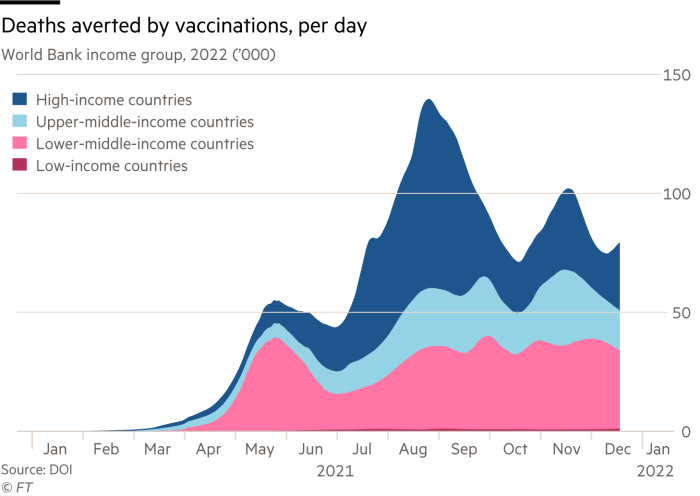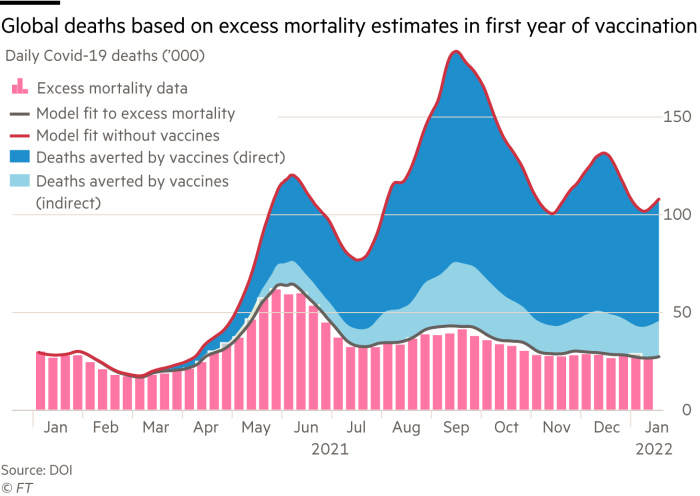Covid-19 vaccines have prevented an estimated 20mn deaths globally in the first year since their initial deployment, according to a new peer-reviewed study.
Researchers at Imperial College London found the vaccines reduced the potential global death toll from Covid-19 by more than half in the same period, they said on Thursday, announcing the results of the study published in The Lancet medical journal.
The mathematical modelling study looked at deaths directly and indirectly linked to Covid-19 vaccination, using death records and total excess deaths, or estimates where no official data was available.
It found that more than three quarters of the deaths averted — 15.5mn out of 19.8mn — were because of the direct protection of vaccination, which is highly effective against severe disease. The remaining 4.3mn deaths were prevented by indirect protection from reduced viral transmission in the population and a reduced burden on health systems.

The authors said their study had a number of limitations, the broadest one being uncertainty in calculating the true death toll of the coronavirus pandemic because numbers are reported differently in each country.
Despite the limitations, Oliver Watson, lead author of the study, said the findings showed “millions of lives have likely been saved by making vaccines available to people everywhere, regardless of their wealth”.
Richer nations accounted for the greatest number of prevented deaths, they said. An extra 599,300 deaths could have been prevented if every country had met the target set by the World Health Organization of vaccinating 40 per cent of people in every nation by the end of 2021.
The WHO said in May that 14.9mn may have died as a result of the pandemic by the end of last year — nearly three times higher than previously thought.

“More could have been done. If the targets . . . had been achieved, we estimate that roughly one in five of the estimated lives lost due to Covid-19 in low-income countries could have been prevented,” said Watson.
The WHO last year called for a global moratorium on boosters to enable poorer countries to vaccinate more people because vaccine supply was not able to satisfy demand.
Vaccination rates in poorer nations have increased since then and supply now exceeds demand. The main hurdle preventing the rollout of jabs in those countries is now poor distribution, rather than manufacturing, according to health experts.
“Ensuring fair access to vaccines is crucial, but requires more than just donating vaccines,” said Azra Ghani, the chair of infectious disease epidemiology at Imperial College. “Improvements in vaccine distribution and infrastructure, as well as co-ordinated efforts to combat vaccine misinformation and improve vaccine demand, are needed.”
Global health authorities are now discussing what vaccines to use for booster campaigns later this year. The WHO has backed the use of an Omicron-specific vaccine to counter a virus that is likely to continue to evolve, while drugmakers have urged regulators to make a decision quickly.
Regulators could make a decision as early as the end of June.

